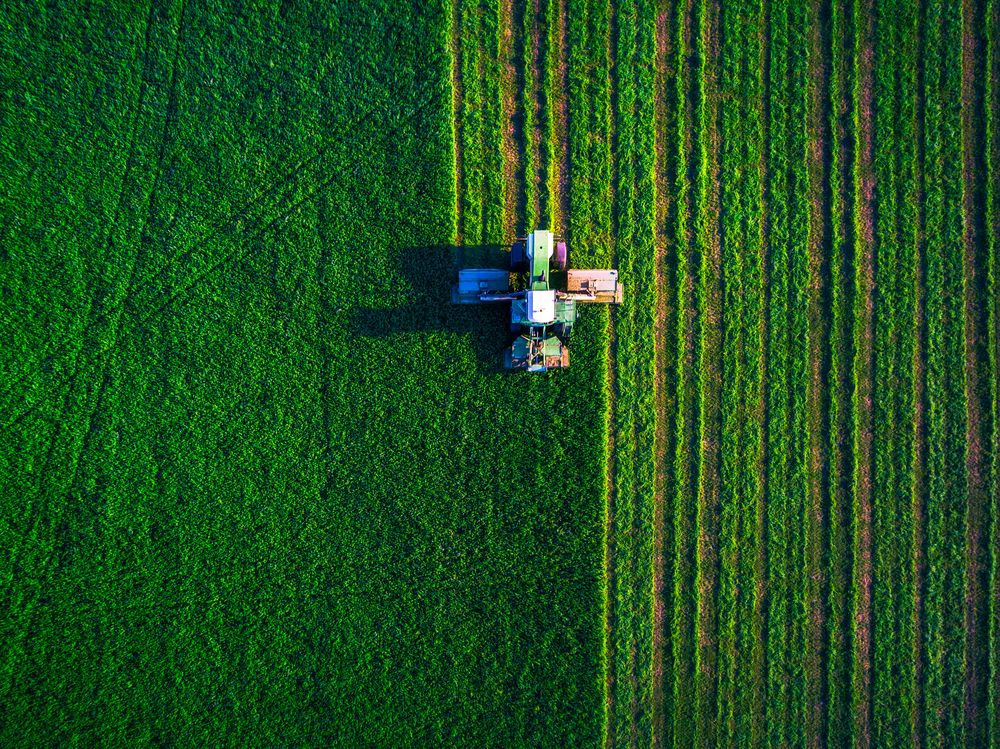Ceres Imaging has raised an additional $2.5 million in Series A funding from existing investor Romulus Capital. The Oakland-based company announced a first close of this round on $5 million in May.
This second close brings Ceres total fundraising to $10.5 million in addition to receiving grants from Elemental Accelerator, the USDA, and the State of California.
Ceres Imaging captures, processes, and delivers high-resolution spectral imagery-as-a-service for agriculture. To capture the most effective images and data, it places its proprietary, custom-built sensors on fixed-wing aircraft, which it says enables it to gather data at a higher resolution and quality than satellite imagery options with greater scale and consistency than is possible with drones.
The company then uses machine learning and data science to identify pests and diseases, which it claims it can do so before a knowledgeable human eye can.
The company will use the new funds to expand its customer base in row crops. After starting in the orchards and vineyards more common to its home base, the West Coast, Ceres recently entered the row crop sector largely through a partnership with Monsanto’s The Climate Corporation.
In June, The Climate Corporation announced that it was integrating imagery from three aerial imagery startups — Ceres Imaging, TerrAvion and Agribotix — to deliver high-resolution imagery to farmers through Climate’s FieldView digital agriculture platform.
Existing clients of these services are now able to view the imagery through a FieldView account, and FieldView clients are able to subscribe to this imagery through their existing account. Climate Corporation announced the creation of a sensor network last year with the hope of bringing all farm data into one place for farmers.
New Crops, New Opportunity
In order to offer services to an entirely new set of growers, Ceres Imaging created a small team of three within the company to work solely on the row crop business.
At the start of this year, the company’s customers were 90% from specialty crops and 10% row crops, but today CEO Ashwin Madgavkar says that breakdown is more like 75% specialty and 25% row crops, with most of its broad acre customers in Illinois and Minnesota. This year the company passed half a million acres under management, he added.
“Detecting disease is really resonating with growers,” he told AgFunderNews. In that same time, Ceres has gone from 14 employees to 40.
Ceres Imaging started out catering to orchards and vineyards on the west coast because those operations are “intensively managed and willing to spend on technology… if we had gone and done row crops directly we have brought a less sophisticated technology,” he added.
Leveraging Partnerships
The success of imagery companies, as with many burgeoning agrifood technologies, will often come down to the funding they are able to raise and the partnerships they can leverage. And it has been an active year in both for the imagery space.
In addition to Climate Crop’s three partnerships, in October, Farmers Edge, a precision agriculture decision support platform, became the sole distributor of Planet’s satellite imagery for agricultural purposes, with the right to use and distribute high-resolution, high-frequency imagery from Planet’s three flagship satellite constellations in 19 countries.
Aerial imagery company Terravion announced a partnership in January with FarmSolutions, a data analytics company. FarmSolutions had been using drone imagery predominantly and absorbed Terravion’s aerial imagery into its algorithms in an attempt to offer more value to each company’s customers. Also in January, Terravion partnered with Servi-Tech, one of the largest independent crop consulting and agronomic services company, to provide its clients with aerial imagery.
On the funding side, Terravion raised a $10 million in Series A funding round in February. The company’s previous rounds were undisclosed.
Satellite imagery analysis platform Descartes Labs raised an oversubscribed $30 million Series B round in August led by new investor March Capital, a Californian venture capital firm. Agriculture commodities giant Cargill also invested in the startup for the first time alongside existing investors Crosslink Capital and agtech specific VC Cultivian Sandbox. Cargill was already a customer of Descartes Labs before investing.
Two more satellite imagery focused startups raised funding this year too. Orbital Insight, the frontrunner in terms of funding, raised a $50 million Series C Round in May bringing its fundraising total to $78.7 million. Astro Digital raised a $16.65 Series A round in March. and TellusLabs, raised a $3.1 million seed round in January.





